HiveToday,EU-Viktor Orban controversy, US-Russia prisoner swap, Japanese Yen keep losing it's value
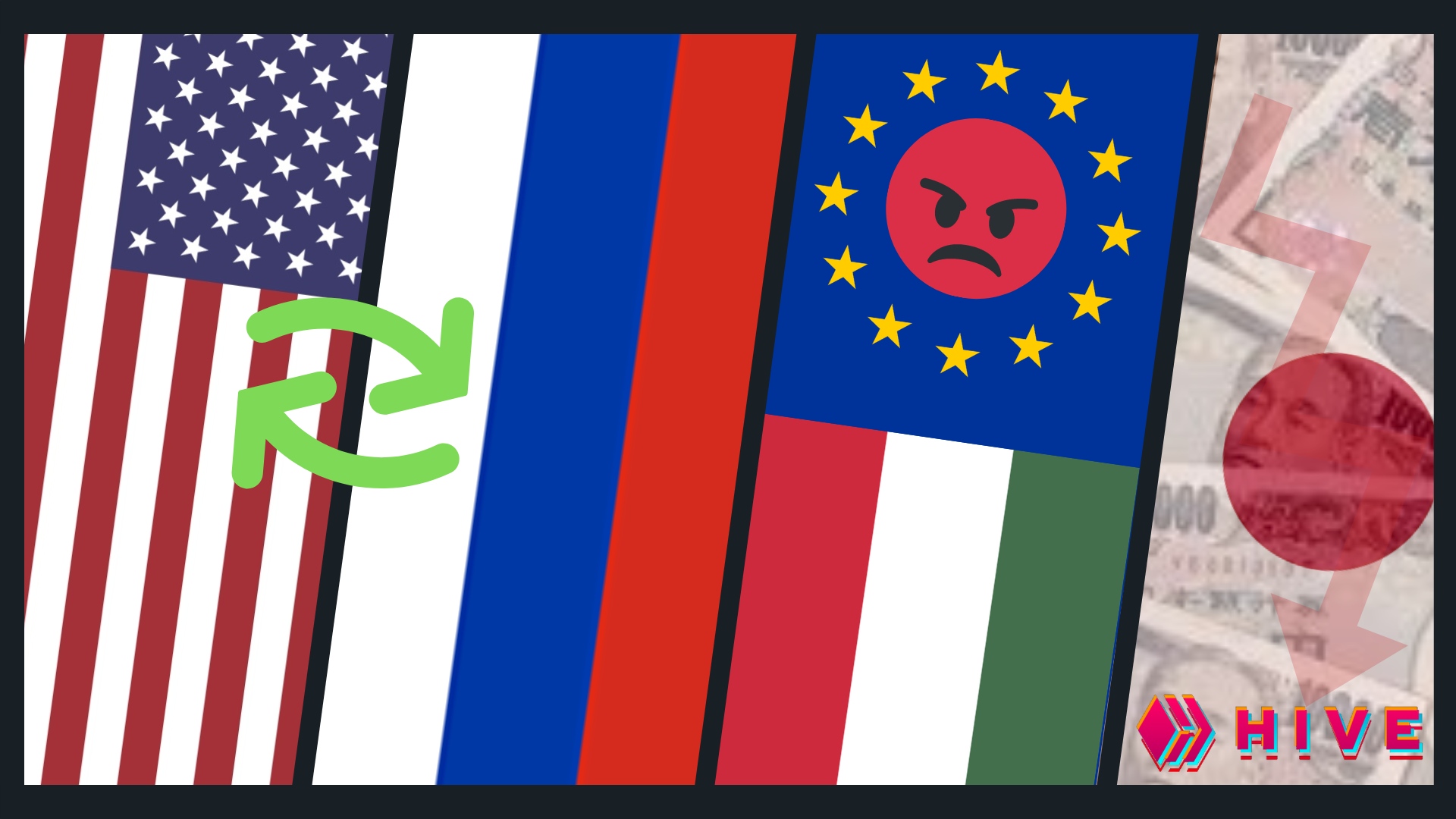
The European Commission has officially triggered its powerful new conditionality mechanism against Hungary, which could see the country lose out on EU funding due to its rule of law breaches. This is the most serious move that the EU has made in its long-running feud with Hungarian prime minister Victor Orban and his ruling populist party. The conditionality mechanism gives Brussels the power to withhold EU funding if rule of law problems affect the bloc's budget. The commission sees several problems in Hungary, including systemic irregularities in public procurement and the funneling of contracts to specific companies. The commission's move here is the beginning of a long process, and the decision to withhold funds would actually need the support of 55 percent of EU countries, representing at least 65 percent of the EU's population. So while it's not quite in motion yet, that approval does look likely to happen in the future, which means that Hungary and Europe's relationship might be about to get even more fraught.
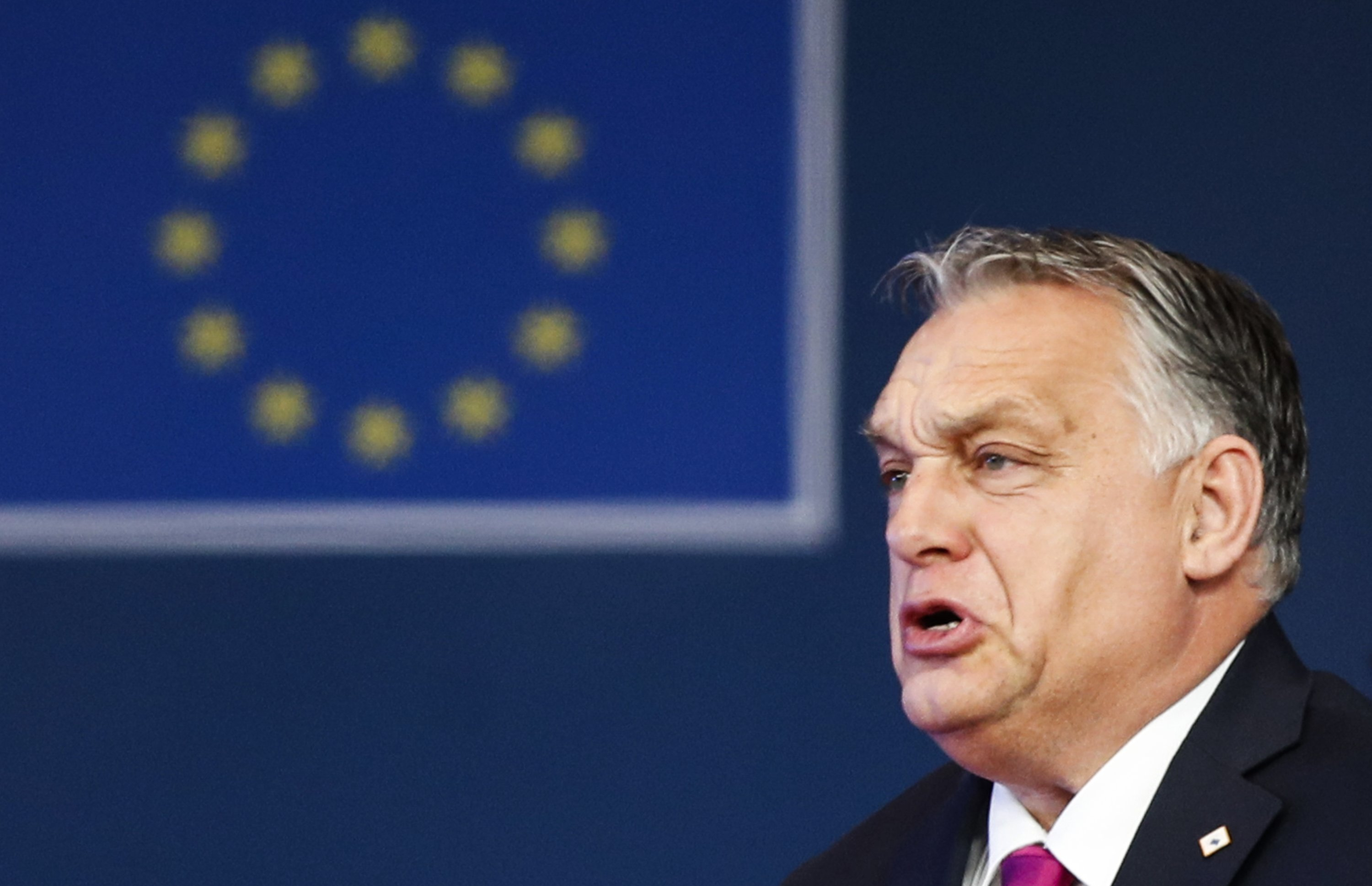
Speaking of fraught relationships, the US and Russia have carried out an unexpected prisoner swap. Despite their relationship is at the worst point since the Cold War, former US marine Trevor reed who was jailed in Russia for assaulting a police officer was swapped for a Russian pilot jailed for drug smuggling in an operation organized and facilitated by turkey. President Biden said that the negotiations that allowed us to bring Trevor home required difficult decisions and I do not take that lightly US officials made clear that this exchange was not part of wider diplomatic talks and based on a discrete set of prisoner issues. Reed's family and the US authorities have maintained that his imprisonment was unjust and branded his trial a theater of the absurd. His release though has no immediate effects on other cases of Americans detained in Russia, like NBA star Britney Greer.

The Central African Republic has this week adopted bitcoin as its legal currency, making it the second country in the world to do so El Salvador's new legislation means that bitcoin will now be legal tender alongside the CFA franc an illegal and regulatory framework for cryptocurrencies has now been established in the country. The country's president has said that the move places them on the map of the world's boldest and most visionary countries. Despite rich deposits of gold and valuable minerals, the Central African Republic is one of the world's poorest countries and has been embroiled in an almost 10-year civil war. So while some optimists might think that crypto can help the country with internet penetration as low as 10 percent, bitcoin adoption is unlikely to be widespread. In fact, in the eight months since El Salvador made the move to bitcoin, it still struggled to take root.
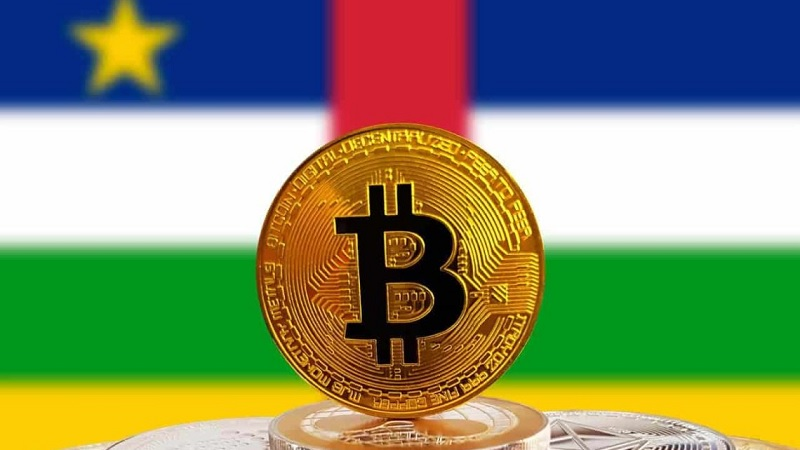
Sticking with finance, Japan's currency, the yen, today fell to its lowest value in decades. At the time of writing, the yen is trading at about 130 yen to the dollar, a 20-drop from last winter when it reached a high of 102 yen to the dollar. This major shift is large because the Bank of Japan has decided not to raise interest rates in response to the global uptick in inflation and instead decided to continue buying Japanese government bonds to keep borrowing costs low. Specifically, to keep Japan's 10-year bond yield at or below 0.25 percent. This is in stark contrast to other countries around the world, including the Federal Reserve in America, which has decided to tighten interest rates. This has meant that investors have started buying a lot more dollars than yen because, well, they just get better interest rates on dollars. But in turn, this has pushed down the value of the yen, which could end up with pushing up inflation in Japan, which is worrying about a country that imports a lot of its resources.
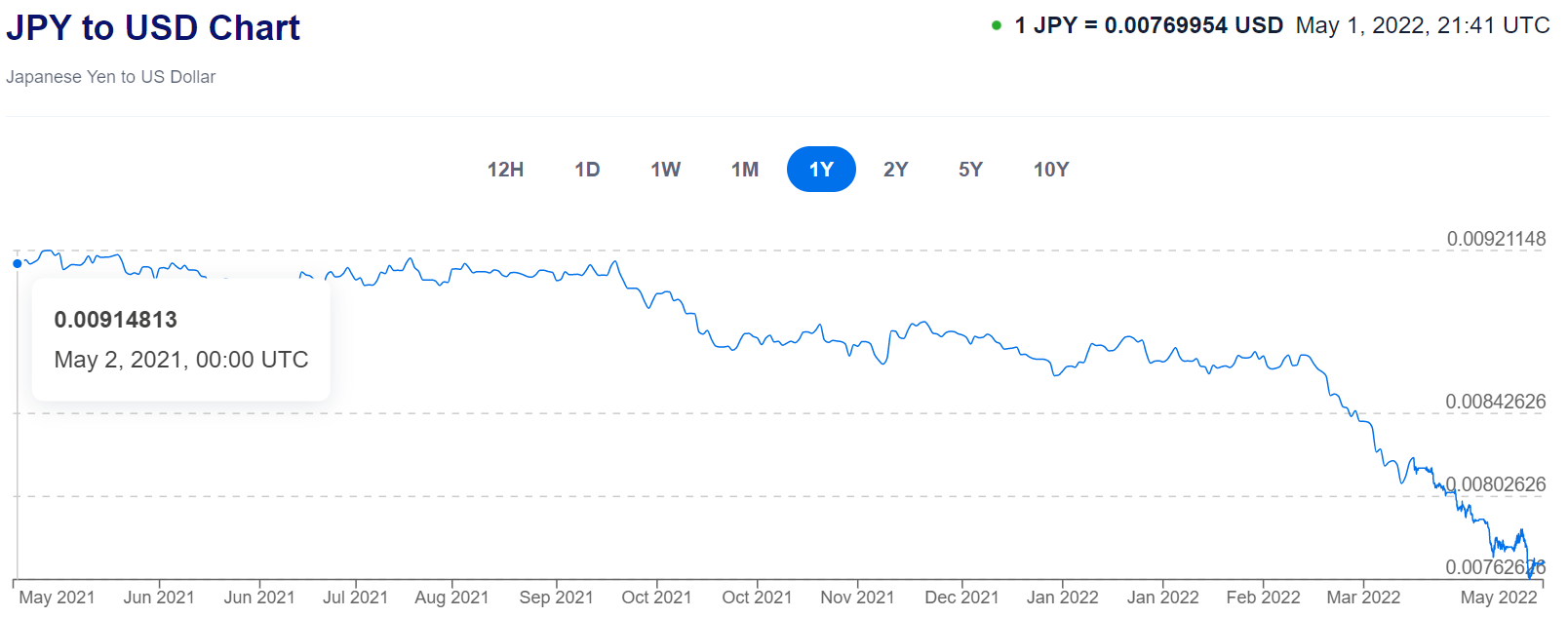
Japanese Yen / USD price change in one year, XE
Keeping with money for our final story While Meta Facebook's parent company hasn't been having the best time lately, with their slowest revenue growth since going public, there does appear to be some good news. Today, the company's share price has rocketed as a result of its latest profits being larger than expected. In the most recent quarter, Meta posted profits of 7.5 billion dollars, well above Wall Street's 7.1 billion expectation. While this might sound impressive, it is still down 21 from the same period last year and Meta has made it clear that they expect a continuation of this negative trend due to the impact of the war in Ukraine. Digging a bit deeper, it isn't all bad news for the company. Meta's ad impressions have increased by 15 since last year, but other factors, including the war, mean that the price that they can charge for adverts fell by eight percent. At the end of the day, it's a mixed bag for Meta, but among a sea of bad news for the company, this is at least a light spot.





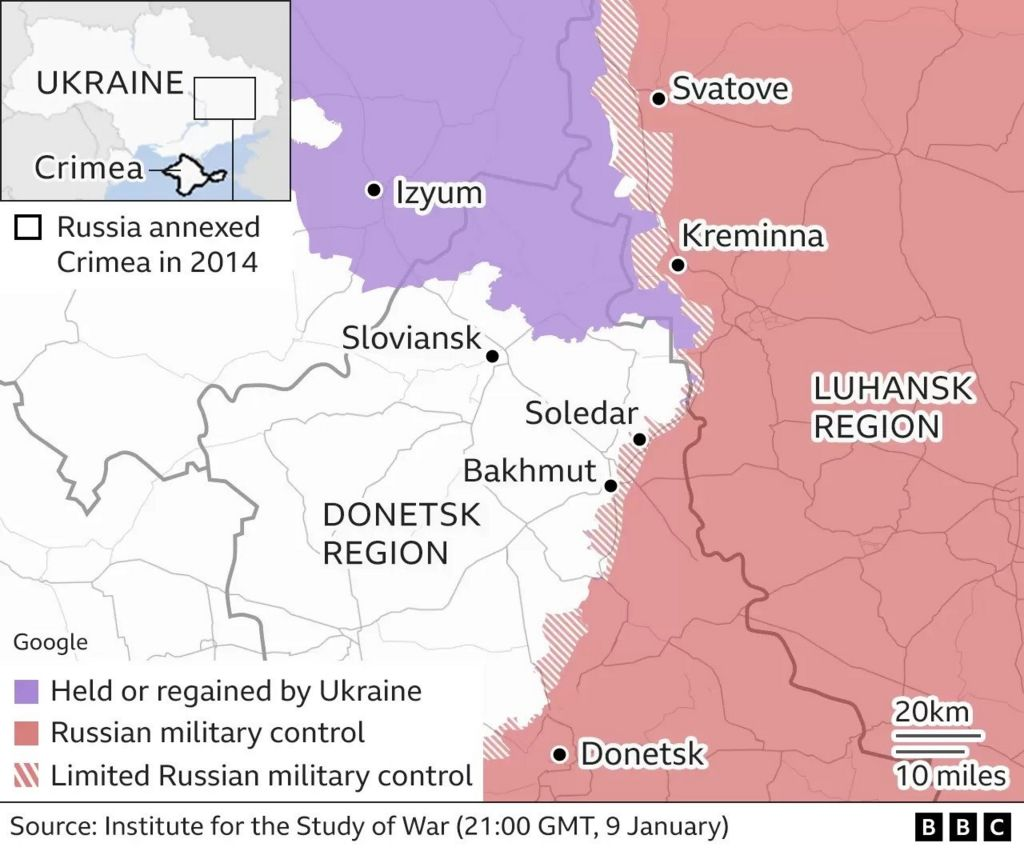


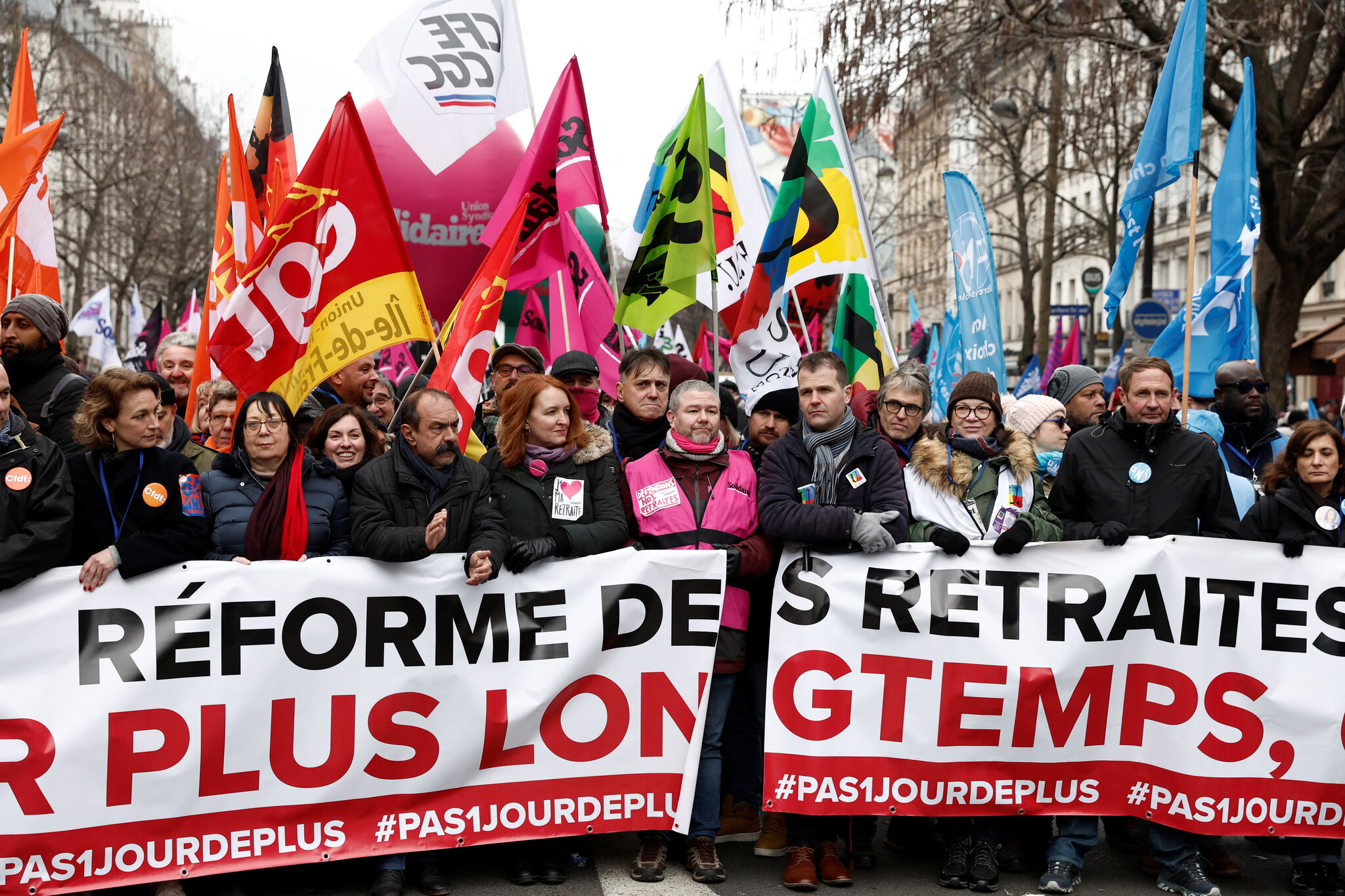
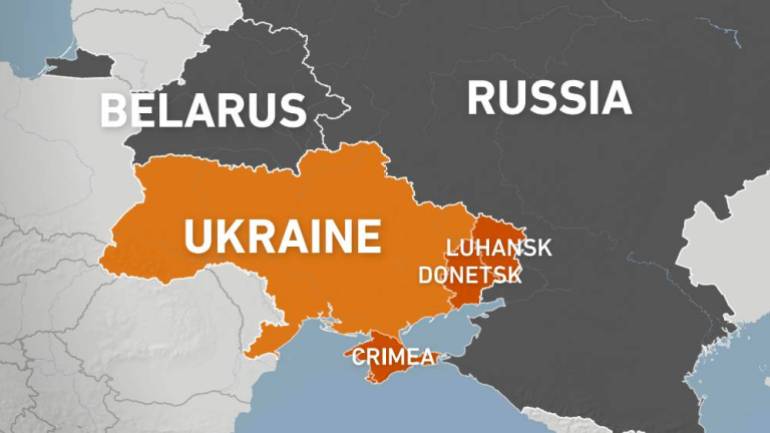
Comments